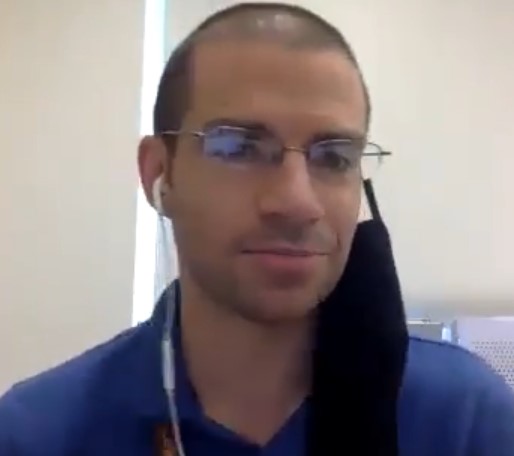

Dr. Eileen Fernandez
Making Experience 1: Connecting Customary Lesson to Manipulatives
In this first video, Eileen introduces her own experience of the project, and talks about connecting a customary lesson to manipulatives in progress.
Making Experience 2: Designing New Lesson(s)
In this second video, Eileen talks about designing new lesson(s) that deliberately connect up to manipulatives in progress!
Making Experience 3: Modifying Customary Lessons
In this third video, Eileen talks about her own experience modifying customary lessons for teachers' insights and questions!


Mark Russo is the district supervisor of mathematics and computer science for the Pascack Valley Regional High School District in Montvale, NJ and an adjunct professor at Montclair State University. He is interested in promoting equity in schools, supporting effective mathematics teaching and learning, and helping students experience the beauty and power of mathematics and statistics. He is currently exploring the development of algebraic reasoning in computer science and the utilization of quantitative reasoning through interdisciplinary connections between statistics and social studies (SASS).
Read Mark’s journal here
Mark felt the weight of not knowing the tool that well. He ended up spending too much time, too early, with the tool, which then became more about the design of the manipulative rather than a tool that helps with conceptual understanding.
Click here to listen
Mark says that some of the tools he was designing ended up being gimmicky because he was concentrating too much on the design. However, Mark asserts that conceptual understanding has to be the focus before you even get into the technology.
Listen here
While Mark had never designed or engaged in 3-D designing, he expresses that he is very comfortable not having all the knowledge. While so, there were moments that he was really uncomfortable in class with the technology which made him less comfortable exploring unknown territory.
Mark further explains that because of quarantine, teachers were able to have a choice of whether or not to use it. He notes that some teachers kept going with Tinkercad while others went to cardboard.
Listen here

